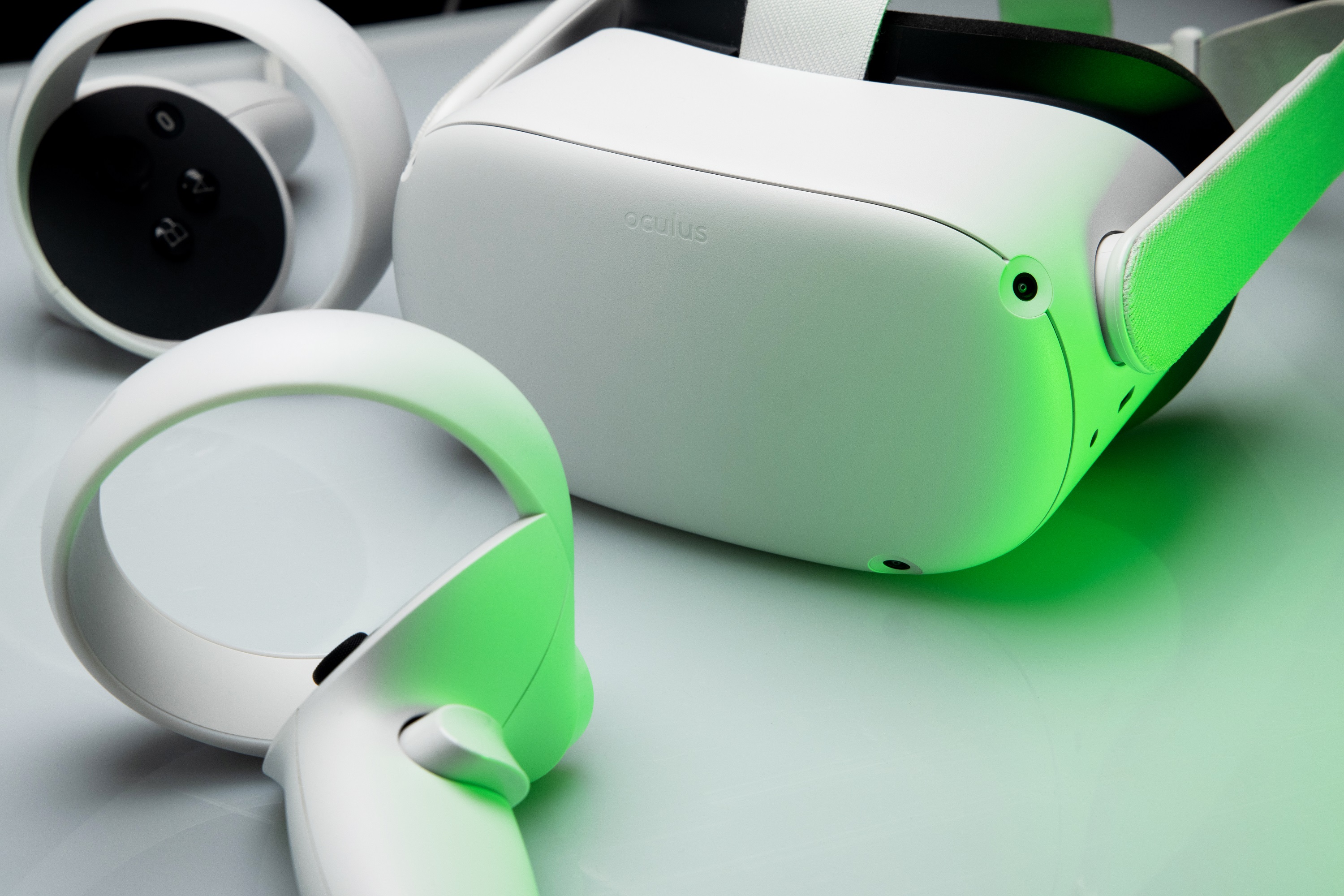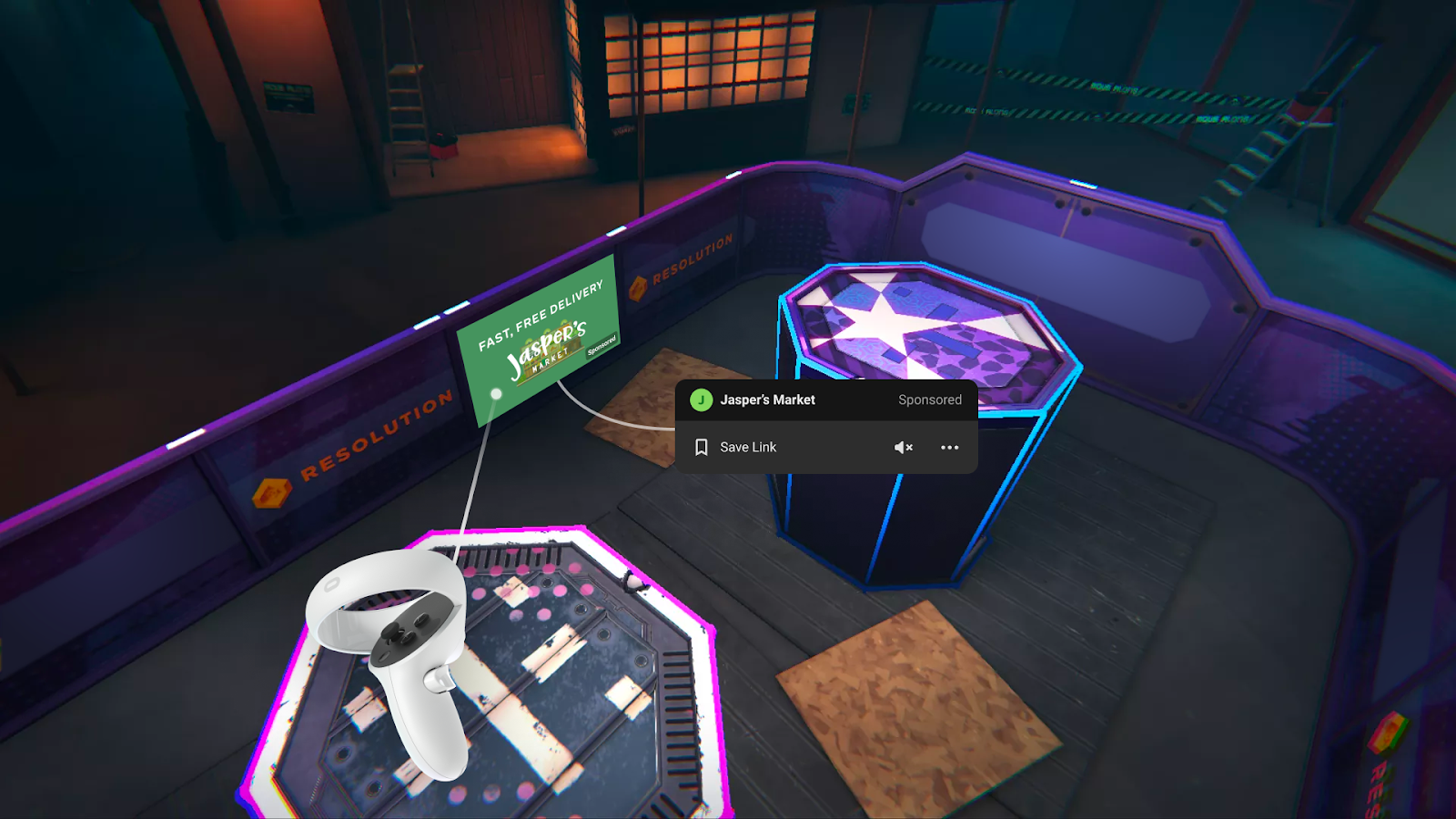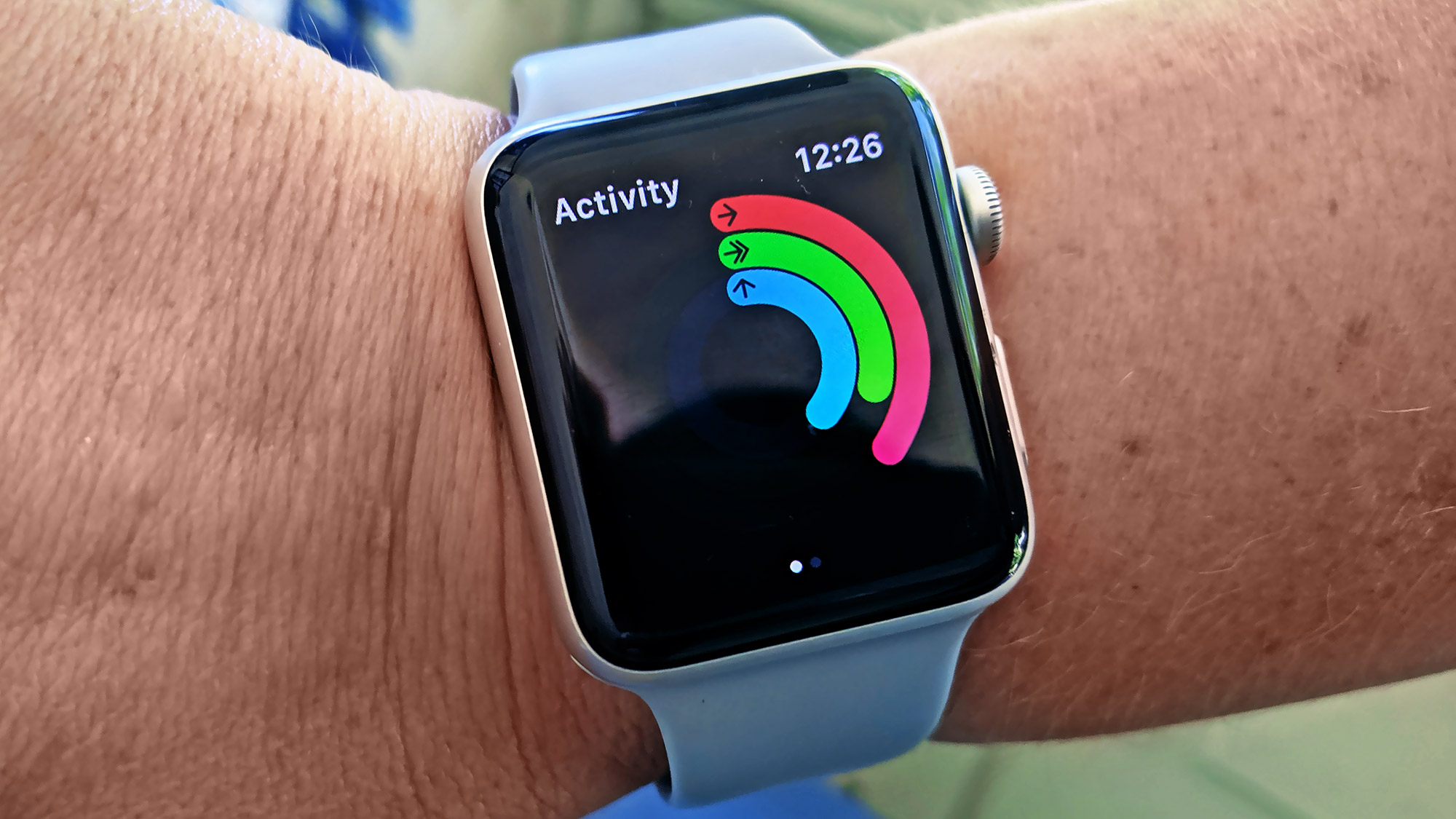
Facebook is an advertising company at the end of the day, so it's no surprise that its line of virtual reality headsets, including the Oculus Quest 2 and the Oculus Rift S, could soon be hit with ads.
According to Cnet, Facebook is now testing in-game VR ads within the game Blaston. Just like billboard ads people see at a football game, when playing Blaston, gamers will see ads from business. It would also be possible to click on ads to get more information.
- Oculus Quest 2 review
- These are the best VR headsets out right now
- Plus: PSVR 2 reportedly set for 2022 release — and it could have OLED panels
At the moment, Blaston, made by Resolution Games, costs $10. It's uncertain if this new in-game ad push will bring the price of the game down or make it free-to-play.
"This is a key part of ensuring we’re creating a self-sustaining platform that can support a variety of business models that unlock new types of content and audiences," Facebook said in a blog post. "It also helps us continue to make innovative AR/VR hardware more accessible to more people."
It was a move that some users have seen coming. Facebook already began testing ads within the Oculus mobile app earlier this year.
Facebook says that it aims for ads to be high quality that follow its "build for people first" approach. Users will have the option to hide ads.
Facebook says it will collect information on whether you interacted with an ad and how (such as clicking on it for more info or hiding it.) "Outside of that, this test doesn’t change how your Oculus data is processed or how it informs ads," the company said.
Sign up to get the BEST of Tom's Guide direct to your inbox.
Get instant access to breaking news, the hottest reviews, great deals and helpful tips.
Facebook is also encouraging users to reach out to the Oculus Support page to share feedback.

There was plenty of consternation among VR fans when Facebook bought Oculus for $2 billion back in 2014. The worry was that Facebook would influence development of VR technology in a way that could harm the original vision by founder Palmer Luckey.
Back then, Luckey assuaged fears by saying "you will not need a Facebook account to use or develop for the Rift." Luckey also said in a Reddit post that "We are not going to track you, flash ads at you, or do anything invasive."
Well, Facebook fired Luckey in March of 2017, in the aftermath of scrutiny over his political contributions. Since then, Facebook has become increasingly tied to the Oculus platform. Last year, the social media giant required Oculus users to sign in with a Facebook account, infuriating users.
Oculus isn't the only Facebook-owned company trying out new advertising methods. On WhatsApp, the company announced earlier this year that data from the messaging service would be shared to better target users with ads.
- More: These are the best VR games out right now
Imad is currently Senior Google and Internet Culture reporter for CNET, but until recently was News Editor at Tom's Guide. Hailing from Texas, Imad started his journalism career in 2013 and has amassed bylines with the New York Times, the Washington Post, ESPN, Wired and Men's Health Magazine, among others. Outside of work, you can find him sitting blankly in front of a Word document trying desperately to write the first pages of a new book.

